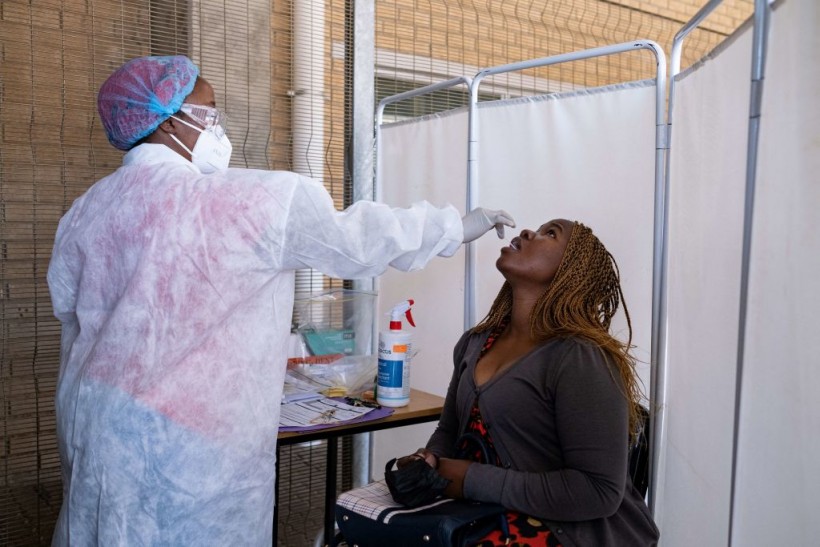Raquel Viana, the Head of Science at one of the largest private testing laboratories in South Africa, sequenced the genes of eight coronavirus samples on November 19 and got the shock of her life. The samples tested in the Lancet laboratory have several mutations, especially on the spike protein that could signal current vaccines might not be effective against it.
Since Omicron's discovery, Viana has sounded the alarm over the new strain that led many countries to impose travel bans on those coming from South Africa. The World Health Organization (WHO) said that it would take weeks to understand the variant fully.

A healthcare worker conducts a PCR Covid-19 test at the Lancet laboratory in Johannesburg on November 30, 2021. - A new, heavily mutated Covid-19 variant, dubbed omicron, spread across the globe on Sunday, shutting borders and renewing curbs as the EU chief said governments faced a "race against time" to understand the strain (Photo by EMMANUEL CROSET / AFP) (Photo by EMMANUEL CROSET/AFP via Getty Images)
South African Scientists Confirm Omicron COVID-19 Variant
"I was quite shocked at what I was seeing. I questioned whether something had gone wrong in the process," Viana told Reuters. Later on, she had "a sinking feeling that the samples were going to have huge ramifications."
She immediately called her colleague, gene sequencer Daniel Amoako who works at the National Institute for Communicable Diseases (NICD), to confirm her findings of a possible new lineage of the virus.
Together with a team of scientists at the NICD, Amoako spent two days testing the eight samples that Viana sent them. They found that all of those samples had the same mutations. Even Amoako, his colleague Josie Everatt and the rest of the team were surprised by what they found.
Then they noticed a sharp increase in COVID-19 cases in the area in the past week, which could indicate a new mutant variant of COVID-19. Additionally, a colleague also alerted Viana to an odd sample with an S-gene dropout earlier this month. It turns out; this is one of the mutations they found in the Omicron variant.
On November 23, a few days after Viana first identified the new variant and after scientists conducted additional tests on 32 samples from Johannesburg and Pretoria, Amoako said that it was clear that it was indeed a new variant. "It was scary," Amoako told Reuters.
Omicron COVID-19 Variant Symptoms Seem Mild So Far
On the day that NICD officials informed WHO, Viana said that over two-thirds of the positive cases in the South African province of Gauteng were showing the S-gene dropout, according to a similar report by The Daily Star. This indicated that Omicron had become a dominant variant in the region.
South Africa is now expecting the cases to quadruple by the end of this week, says South Africa's leading infectious disease expert Salim Abdool Karim on Monday.
On the other hand, Dr. Angelique Coetzee, one of the doctors who raised the alarm of the new variant, told BBC News on Sunday that symptoms linked to the Omicron variant have been extremely mild so far. She has started seeing patients with unusual symptoms even before the new variant has been confirmed. But also noted that this is the most virulent strain of the virus to date.
RELATED ARTICLE: Omicron COVID-19 Variant: Fiji Health Ministry Warns Mutant Form Increases Risk of Reinfection
Check out more news and information on COVID-19 in Science Times.














